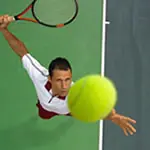
This article is meant to help you shift an attitude—-a way of thinking about what tennis players call the mental game.
It's not about tips, but it is about making a profound shift where your view of the mental game will never be the same.
There is so much written and talked about when it comes to the mental game that it can be quite overwhelming. Everywhere you turn you are given more tips, strategies and things to think about.
All of these things are great, of course, but I want to show you two (actually there are five all together) mental game realities that are important to know and that can shift your view of the mental game completely.
The reason it is so important to make this shift is because 85% of the tennis players I've talked to over the past 25 years have a view of the mental game that limits their ability to play their best tennis more consistently—-and they don't even realize it.
The following two mental game realities may surprise you or even shock you, but knowing them can loosen you up to play your best tennis. In addition, you may recognize how true they are from your own experience.
Reality No. 1: The Mental Game IS Your Game
I travel across the USA talking to many tennis players who say things to me like, "I need to work on my mental game,"or "My mental game wasn't very good today."
While these are common comments, they point out one important thing: They indicate that a tennis player actually believes their mental game is part of their game when the reality is: it IS your game.
You can begin, right now, to realize that your mental game could never separate your game, and when you make this mental shift, it can unlock your thinking from limiting to liberating.
How is that possible?
You have the same tools as anyone else does. I call these your Power Tools and they are your mind, body and emotions. Truth is, they are inseparable. Every time you put your hands on your tennis racket-—all three are "in play" and you cannot separate them no matter how hard you try.
Think about it-—your game is constantly being influenced by these power tools and there is no escaping this. Your results, whether great or not so great, are being influenced by how well or how poorly you use your Power Tools.
So you can see that your Power Tools are never separate from your game because they are always involved in every aspect of your game.
Reality No. 2: Too Much Information Harms Your Mental Game
Most tennis players that contact me proudly inform me of the information they've gathered over time such as the books they've read, workshops they've taken, lessons they take and so on.
They have loads of information at their finger tips and yet they continue to sabotage themselves and believe deep inside they can play better tennis and don't know why they are not fulfilling that belief.
Do you believe you can play better tennis? Yes? Good, because you're right.
Here's one of the key reasons tennis players get in their own way and it has to do with mental game reality No. 2. It is: More information does not equal better play!
This is a surprise to a lot of people who think information is important. I'm not suggesting that it's not but here's my question for you. When you played your best tennis or when you were in what tennis players call the "zone" were you thinking more or thinking less?
Almost every tennis player I've asked this question to says, "Less!"
It's about you performing your best on the tennis court. Think about the times you played your best tennis. Chances are you were "flowing" better, not thinking too much and generally feeling freer at that time. Mental game reality No. 2 suggests that just because you go around gathering more information does not mean that you will play better tennis.
Why? Because too much information floating around your head actually slows you down and interferes with the freedom that so many tennis players really want to experience.
Let's face it, there is plenty of information around isn't there? Everywhere you turn there's another piece of advice waiting for your attention. I'm not suggesting the tips or strategies are "bad" or wrong. They're not.
However, there are many tennis players who have a lot of information and they believe that the information itself is going to help them play better and yet they still continue to underperform. Clearly, if more information were the key, more tennis players would be playing up to their talent level more consistently, wouldn't they?
Remember, it's about performance and Mental game reality No. 2 reveals that too much information running through your mind will slow you down and interfere with your performance. It's no different than a computer cable loaded with too many users at one time and the connection is slow. The human body functions the same way. Too much information moving through it will slow it down! This is the classic trap of the over thinker and over analyzer who sabotage their game with too much information!
Bottom Line: Make these two shifts:
1. You can free your game up right now by first realizing that your "mental game" influences everything you do. It doesn't just affect certain parts of your game, it affects all of it. Try to change your language about it and stop separating it from your actual game.
2. Realize that information, while interesting and informative, does not mean you can go on the court and expect to over think and over analyze and play loose, powerful tennis. Remember, more information can prevent you from being that loose and free tennis player because the body will slow down when bogged down with too much information.
To your best tennis!
David Breslow is a former Competitive Tennis Player, Teaching Professional and Director of Mental Toughness at the USTA National Tennis Center (site of the US Open). Click here to learn more about how Practice Great, Play Even Better can improve your game.
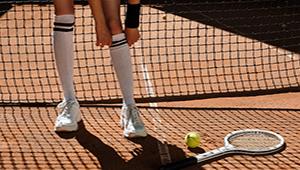

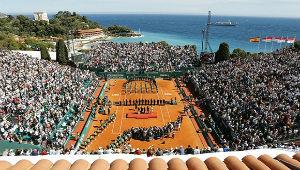


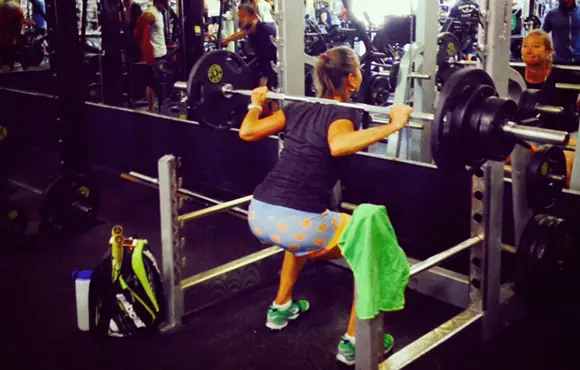

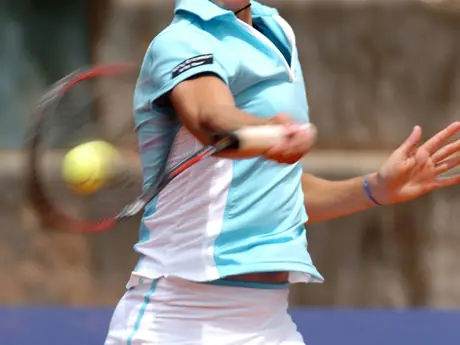
Discuss This Article